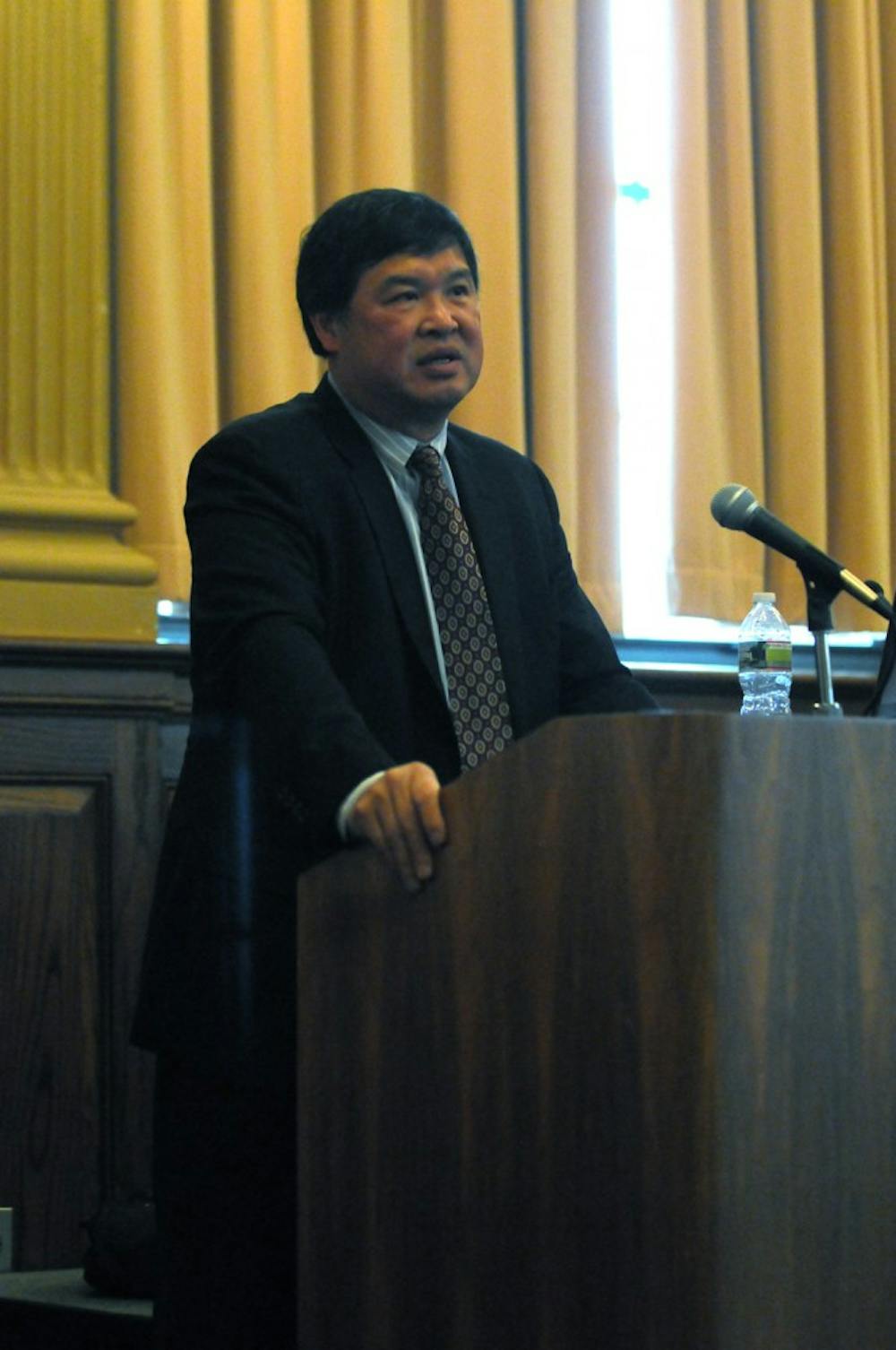When asked why he thought Bernie Madoff deserved a 150-year sentence, Judge Denny Chin replied, “First of all, the guideline sentence [for Madoff’s crime] was actually 150 years.”
Laughter rippled throughout the mid-sized room at the Law School before Chin took on a more serious tone.
“The symbolism of this was important,” he said. “I never thought he was truly remorseful.”
Friday and Saturday, Penn Law Review hosted its 19th annual symposium, titled “Sentencing Law: Rhetoric & Reality” at the Levy Conference Room. The symposium featured a total of 29 public figures involved in various sectors of law to discuss possible solutions to growing concerns that face the American prison system today. Among the guest speakers were Pennsylvania Sen. Stewart Greenleaf, Rep. Robert Scott and former Rep. Asa Hutchinson.
Law Review invited Chin for a talk on sentencing guidelines. While primarily known more for handling the Madoff case, Chin has also handled the Google Books class action settlement and is the only Asian American currently serving on active status in the Federal Court of Appeals.
During his presentation, Chin argued that emotion is a necessary factor in the sentencing process. Some measure of empathy, which he defined as “understanding and identifying with people with hopes and struggles,” helps judges arrive at a more just ruling.
James Tsuei, a third-year Law student and research editor of Law Review, concurred. “The prospect where justice is meted out as a sort of mechanistic activity is really not something that judges or attorneys should be striving for,” he said. “The result is where you have no need for discretion in the sentencing activity.”
Chin’s reasoning stemmed from the idea that adopting an empathetic perspective helps him better gauge whether a defendant is remorseful. “Is it likely he’ll break the law again? Is it likely he can turn his life around? Should he have another chance?” he listed. But there are exceptions where some cases are just too sentimentally charged, he noted.
Frank Blechschmidt, a third-year Law School student and online executive editor of the Law Review, elaborated, “You can’t get too swayed by these very emotional arguments that are made in court. Obviously sometimes those will be frivolous or strategic moves to sway the court. But ultimately, emotions do really have to be factored in and in most senses, they are.”



